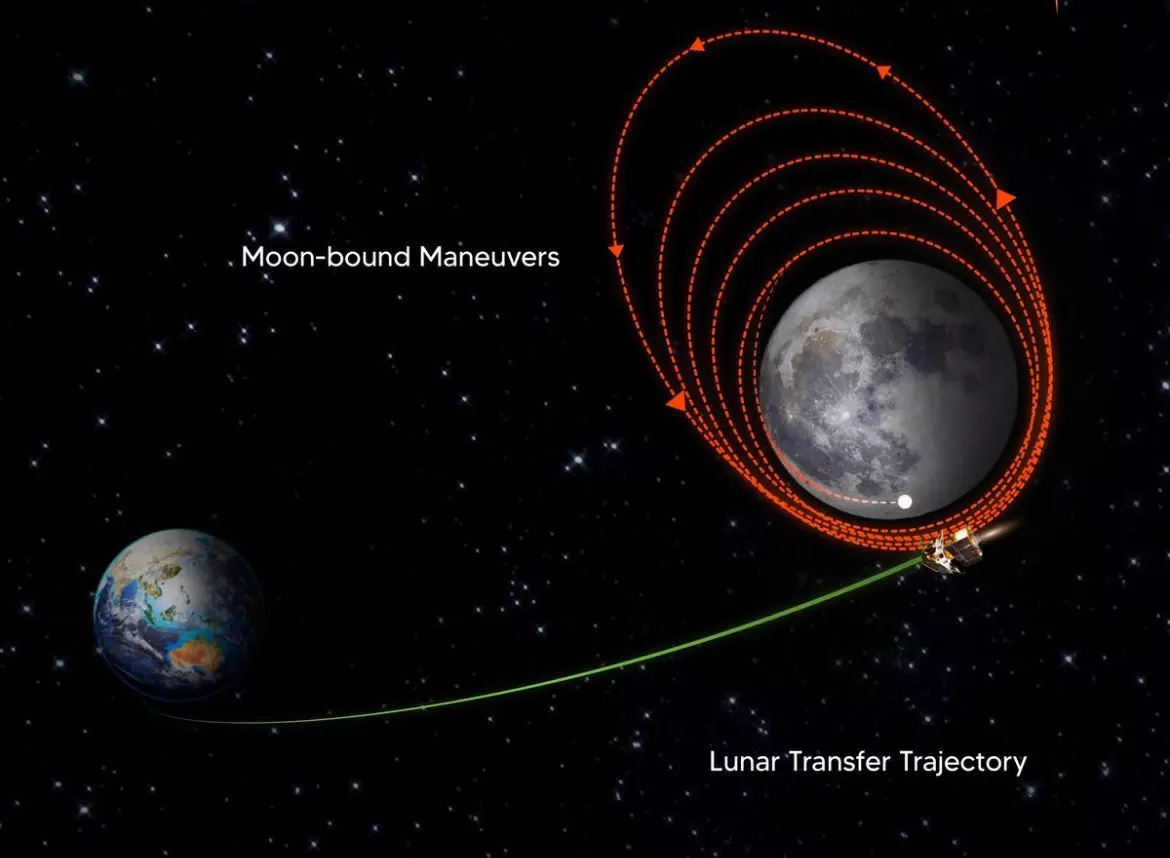ISRO successfully performs orbit reduction manoeuvre, brings Chandrayaan-3 closer to moon
There will be three more moon-bound manoeuvres till August 17, following which the landing module, comprising the lander and rover, will break away from the propulsion module
By Newsmeter Network
Bengaluru: The Indian Space Research Organisation on Sunday said it has successfully carried out the orbit reduction manoeuvre of India's third moon mission Chandrayaan-3, a day after inserting it into the lunar orbit.
The space agency said it will carry out the next such operation on August 9.
The Moon, as viewed by #Chandrayaan3 spacecraft during Lunar Orbit Insertion (LOI) on August 5, 2023.#ISRO pic.twitter.com/xQtVyLTu0c
— LVM3-M4/CHANDRAYAAN-3 MISSION (@chandrayaan_3) August 6, 2023
"The spacecraft successfully underwent a planned orbit reduction manoeuvre. The retrofiring of engines brought it closer to the moon's surface, now to 170 km x 4,313 km.
"The next operation to further reduce the orbit is scheduled for August 9, 2023, between 1300 and 1400 hrs IST," ISRO tweeted on Sunday.
There will be three more moon-bound manoeuvres till August 17, following which the landing module, comprising the lander and rover, will break away from the propulsion module.
After this, de-orbiting manoeuvres will be carried out on the lander before the final descent on the moon. According to ISRO, it would attempt a soft landing on the moon's surface on August 23.
In over five moves in the three weeks since the launch on July 14, ISRO has been lifting the Chandrayaan-3 spacecraft into orbits farther and farther away from the earth.
Chandrayaan-3 is a follow-on mission to Chandrayaan-2 to demonstrate end-to-end capability in safe landing and roving on the lunar surface.
It comprises an indigenous propulsion module, a lander module and a rover to develop and demonstrate new technologies required for inter-planetary missions.
The propulsion module will carry the lander and rover configuration till 100 km of lunar orbit. The propulsion module has a Spectro-polarimetry of Habitable Planet Earth (SHAPE) payload to study the spectral and polarimetric measurements of the earth from the lunar orbit.
The lander has the capability to soft land at a specified lunar site and deploy the rover that will carry out in-situ chemical analysis of the moon's surface during the course of its mobility.
The lander and the rover have scientific payloads to carry out experiments on the lunar surface.
Inputs from PTI